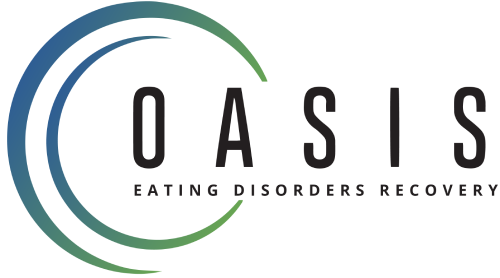Eating disorders are serious mental illnesses that can significantly impact physical and emotional health, as well as social functioning, affecting millions of people worldwide. Luckily, there are several treatment options available to help those struggling with eating disorders. Partial Hospitalization Programs (PHPs) are one of the most effective options for individuals who require intensive support to manage their eating disorder symptoms, but do not need round-the-clock care. In this article, we will explain what PHPs are and how they can be used to treat eating disorders.
Understanding Eating Disorders
Eating disorders are complex mental illnesses affecting people of any age, gender, or background. Contrary to popular belief, eating disorders are not just about willpower or self-control, but serious mental health conditions requiring professional treatment. Eating disorders are characterized by severe disturbances in eating behavior and negative thoughts related to body image and weight. The three main types are:
- Anorexia nervosa
- Bulimia nervosa
- Binge eating
Anorexia involves food restriction and a fear of weight gain, bulimia involves binge eating followed by purging, and binge eating disorder involves recurrent episodes of eating large amounts of food.
Bulimia nervosa involves cycles of binge eating followed by purging behaviors, such as vomiting or using laxatives. People with bulimia may have a distorted body image and intense fear of weight gain.
Binge eating disorder involves recurrent episodes of eating large amounts of food in a short period of time, often to the point of discomfort. Unlike bulimia, people with binge eating disorder do not engage in purging behaviors after a binge.
A comprehensive treatment treatment plan for eating disorders can include therapy, medication, and nutritional counseling, as we’ll discuss in the next section. Partial hospitalization programs provide structured support and care for individuals who do not require 24-hour inpatient care but need more intensive support than outpatient treatment.
Treatment Options For Eating Disorders
Treatment options for eating disorders may vary depending on the severity of the eating disorder, the patient’s age, and medical history. It’s essential to choose a treatment plan that is tailored to the patient’s individual needs and goals.
A partial hospitalization program (PHP) provides structured, day support for individuals who do not need overnight care. This type of program can be offered virtually or in-person, and it typically runs for six hours per day, five days per week.
In a PHP, patients work with a team of healthcare professionals, including a dietitian, nurse practitioner, therapist, and mental health counselor. Together, they create personalized treatment plans and goals that help guide the patient on their path to recovery. Group therapy is also a crucial aspect of a PHP, providing an opportunity for patients to connect with others who understand what they are going through.
Other treatment options for eating disorders include:
- Inpatient Treatment: Inpatient treatment provides 24-hour care in a hospital or residential setting. This option is typically recommended for individuals with severe eating disorders, medical complications, or who require close monitoring and supervision.
- Outpatient Treatment: Outpatient treatment is ideal for individuals who have completed inpatient or PHP treatment and are transitioning back to daily life. This option allows patients to receive ongoing support while still living at home.
- Intensive Outpatient Programs (IOP): IOP provides more structured support than outpatient treatment, but less than inpatient or PHP treatment. This option is ideal for individuals who require more support than traditional outpatient treatment but do not need 24-hour care.
- Family-Based Treatment (FBT): FBT is a specialized form of treatment for adolescents with eating disorders. This treatment approach involves working closely with the patient’s family to help support the patient’s recovery.
Seeking specialized, appropriate treatment for an eating disorder is crucial for long-term recovery. It’s important to reach out for help and speak with a healthcare professional to determine the best treatment plan.
How Do Partial Hospitalization Programs For Eating Disorders Work?
In a PHP treatment plan, patients have access to a team of healthcare professionals, including a dietitian, nurse practitioner, therapist, and mental health counselor. Working together, the patient’s medical team creates a personalized treatment plan to guide patients toward:
- Re-establishing normal eating patterns
- Understanding and managing triggers
- Reducing or eliminating eating disorder symptoms and behaviors
PHP treatment sessions typically run for six hours a day, five days a week, and can be offered virtually or in-person at outpatient clinics. Some programs may also offer an optional sixth day of treatment on Saturdays for patients who feel they need more support.
What Are The Components Of PHP Treatment For Eating Disorders?
Components of PHP may vary between programs but generally include
- Individual therapy
- Group therapy
- Nutritional counseling
- Medical monitoring.
Individual therapy for eating disorders
Individual therapy is an integral part of PHP, allowing patients to work one-on-one with a therapist to address specific concerns related to their eating disorder. This therapy may include techniques such as cognitive-behavioral therapy or dialectical behavioral therapy, which can help patients manage negative thoughts and behaviors related to food and body image.
Group therapy for eating disorders
Group therapy is another essential component of PHP. Group sessions provide patients with a safe and supportive environment where they can connect with others who understand their struggles. Group topics may include nutrition education, relapse prevention, communication skills, and expressive therapy.
Nutritional counseling for eating disorders
Nutritional counseling is a crucial aspect of PHP, helping patients establish healthy eating habits and learn how to manage triggers that may contribute to disordered eating. Patients work with a registered dietitian to create personalized meal plans and learn about balanced nutrition and healthy eating habits.
Medical monitoring within PHP treatment plans
Medical monitoring is also a key component of PHP. Patients receive regular medical check-ins to monitor their physical health and ensure that their treatment plan is working effectively. Medical professionals may also help manage any co-occurring mental health conditions that may be contributing to the patient’s eating disorder.
Overall, PHP for eating disorders offers a comprehensive and structured approach to treatment, addressing the complex physical, emotional, and psychological factors that contribute to disordered eating. By providing patients with a supportive and structured environment, PHP can help individuals with eating disorders establish healthy eating patterns and achieve lasting recovery.
Contact Oasis for compassionate help!
If you or a loved one is struggling with an eating disorder, don’t hesitate to seek help. Contact Oasis Eating Disorders Recovery for a consultation with our experienced and qualified experts. Our team is dedicated to helping individuals of all ages achieve lasting recovery through clinically proven treatment modalities and evidence-based care. Remember, recovery is possible and you don’t have to face this alone.

